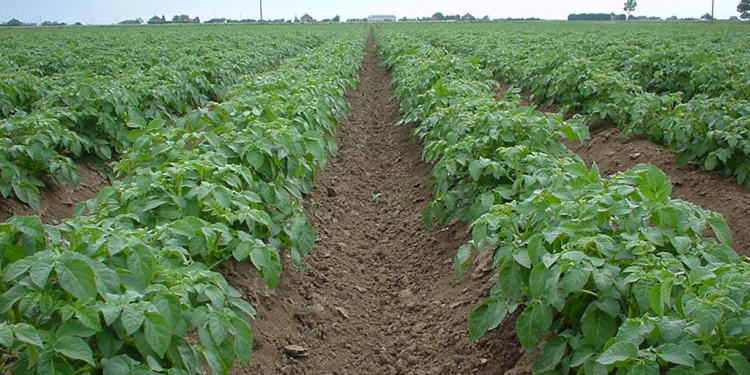Weed management, soil health, and the nutritional quality of foods grown organically continue to be high priority research topics for organic producers.

The Organic Farming Research Foundation (OFRF) and the Foundation for Food & Agriculture Research (FFAR) awarded a grant to Inna Popova at the University of Idaho to examine effective weed management strategies that promote healthy soils and nutritious potatoes.
Mustard seed meal, a byproduct resulting from crushing mustard seeds to provide oil, is an effective tool for controlling more than a dozen problematic weeds that damage crops by consuming necessary nutrients. Utilization of mustard seed meal on-farm has been challenging due to the high quantities needed to be effective as a biopesticide, resulting in excessive nitrogen levels. Too much nitrogen deters the growth and water efficiency of crops.
University of Idaho researchers developed an extract from white mustard seal meal that contains high concentrations of the biopesticide compound, allowing for reduced application rates and avoiding nitrogen overload. Popova and her team are evaluating the efficacy of mustard seed meal extract (MSME) on inhibiting weed seed germination (pre-emergent) and killing aboveground weed growth (post-emergent) while also determining the influence of MSME application on the soil microbiome in the field. Additional objectives include evaluating the influence of MSME on the nutritional quality of potatoes and assessing the efficacy of MSME to act as a pre-emergent and post-emergent herbicide against common annual broadleaf and grass weed species under greenhouse conditions.
These objectives will be tested through field experiments on certified organic farms and in greenhouse experiments. Laboratory analyses will be conducted to assess soil properties, microbiological function, and nutritional quality. The expected outcomes of the research include increased knowledge of the efficacy of MSME as a bioherbicide; adoption of MSME by organic and non-organic farmers as a weed management strategy; and positive environmental, economic, health, and social impacts to farmers and surrounding communities.
“Weed management is one of the biggest soil health challenges for organic farmers, especially in annual crops,” said Brise Tencer, executive director, OFRF. “This research will add to the body of sound, science-based information on weed management strategies that do not undermine efforts to optimize soil health and fertility.”
“At FFAR, we are committed to funding bold science that has big impact. We are proud to fund this research that has the potential to improve the nutritional quality of potatoes while promoting healthy soil practices,” said Sally Rockey, FFAR’s executive director. “This research supports thriving farms while building sound soil health practices from the ground up.”
This grant is one of 13 OFRF is awarding this year to help address the top challenges facing organic farmers and ranchers. As a result of OFRF’s research, education, and outreach efforts, thousands of farmers have received pertinent research and training information. Results from all OFRF-funded projects are available to access for free in its online database.







